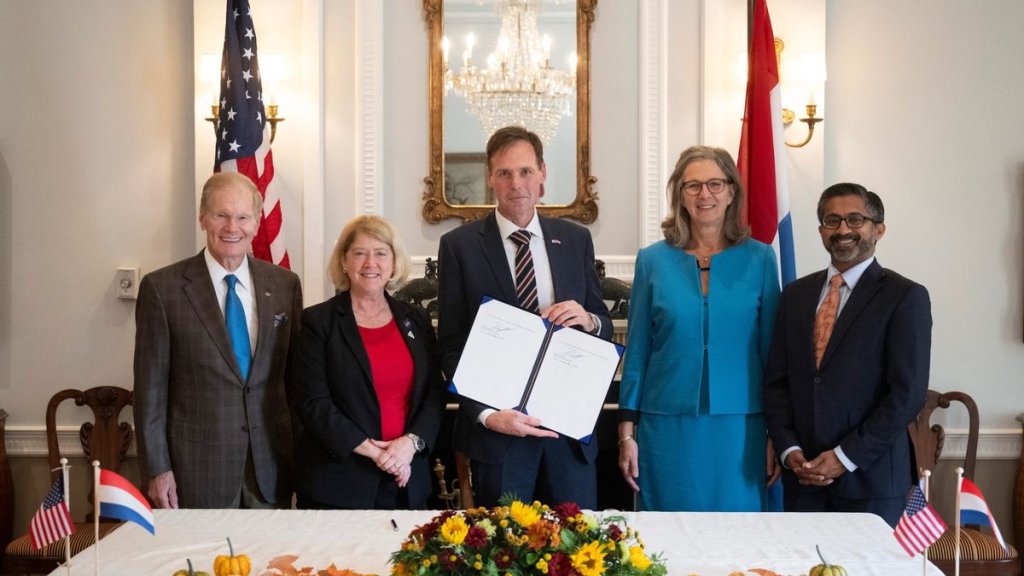Two more nations have joined the United States’ moon-exploration club.
Iceland and the Netherlands have signed the Artemis Accords, which lay out a framework for peaceful, transparent and sustainable lunar exploration, NASA officials announced on Wednesday (Nov. 1).
Iceland came on board last month, and the Netherlands did so on Wednesday (Nov. 1) during a ceremony at the Dutch Ambassador’s Residence in Washington. The two additions bring the total number of signatories to 31.
Related: What are the Artemis Accords?
“NASA welcomes the Netherlands as the newest and 31st member of the Artemis Accords family,” NASA Administrator Bill Nelson said in a statement on Wednesday.
“It takes global leadership and cooperation to ensure the peaceful, transparent exploration of space for the Artemis Generation and beyond,” he added. “As one of America’s oldest allies, NASA is proud to expand our partnership with the Netherlands and build a future defined by limitless opportunity and discovery.”
NASA and the U.S. Department of State set up the Artemis Accords in 2020. The agreements are the diplomatic arm of the agency’s Artemis program, which aims to establish a permanent human presence on and around the moon by the end of the decade.
That ambitious goal will be achieved via cooperation with both private industry and international partners, NASA officials have said.
The 31 Artemis Accords signatories include some big spaceflight players, including Canada, France, Germany, India, Japan, South Korea and the United Kingdom.
China is leading another crewed lunar effort, which aims to establish a base near the moon’s south pole in the 2030s. Six nations have pledged their cooperation with China on that project: Azerbaijan, Belarus, Pakistan, Russia, South Africa and Venezuela.

